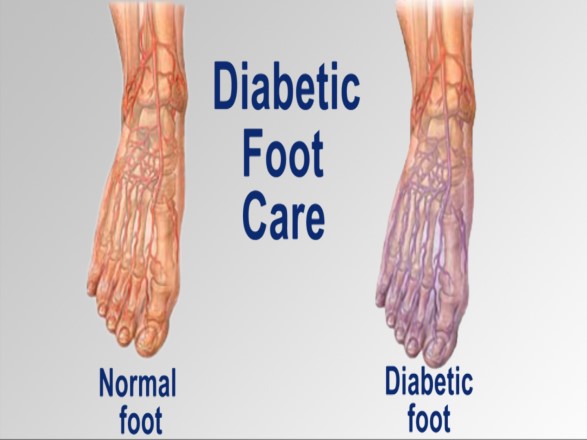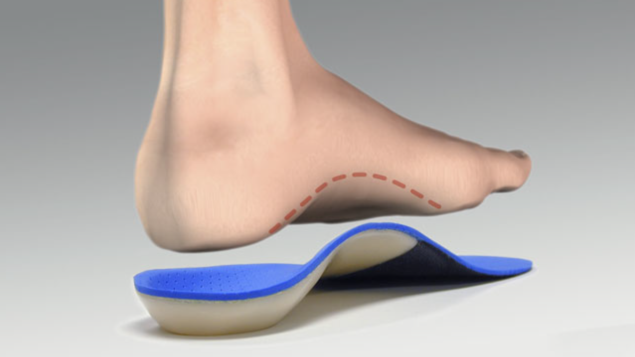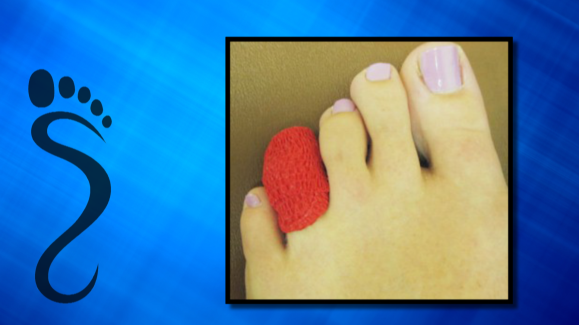Items filtered by date: January 2015
Arthritic Implant Cartiva eases Toe Pain
 Arthritis of the big toe affects nearly half a million of Great Britain’s population. Cartiva, an innovative new implant, has been purported to help ease the pain and stiffness from arthritis through surgery. To alleviate pain and keep them from rubbing together, the implant is surgically inserted between the bones of the toe. Cartiva’s flexibility and putty-like consistency allow it to act as a shock absorber, similar to cartilage. Val Cornwall, a sixty-seven-year-old resident of Hillingdon, Middlesex underwent surgery for the procedure in February 2011 and is now as active as ever. Cornwall was able to leave the hospital the next morning after a forty-minute operation under general anesthetic.
Arthritis of the big toe affects nearly half a million of Great Britain’s population. Cartiva, an innovative new implant, has been purported to help ease the pain and stiffness from arthritis through surgery. To alleviate pain and keep them from rubbing together, the implant is surgically inserted between the bones of the toe. Cartiva’s flexibility and putty-like consistency allow it to act as a shock absorber, similar to cartilage. Val Cornwall, a sixty-seven-year-old resident of Hillingdon, Middlesex underwent surgery for the procedure in February 2011 and is now as active as ever. Cornwall was able to leave the hospital the next morning after a forty-minute operation under general anesthetic.If left untreated, arthritis of the feet—especially the big toe—can be very painful. If painful arthritis has been troubling you, consult with podiatrists Dr. Michael E. Newman and Dr. Denise Kohler from Pennsylvania. Our doctors will provide you with quality foot and ankle treatment and alleviate your joint pain.
Arthritic Foot Care
In an average lifetime, we walk approximately 75,000 miles. This can put a great deal of stress on the 26 bones and 30 joints that we have in our feet. As we get older, our feet lose flexibility and elasticity. Our shock absorbers weaken, and if arthritis comes into play, the joints become inflamed and distorted. Arthritic foot care and treatment would become imperative at this point.
It is best to take care of your feet by wearing well-fitted shoes. Certain conditions may develop when you wear shoes that don’t fit properly, for example hammertoes, neuroma, and bunions. Wearing shoes that have a lower heel and extra room in the shoe can help your feet be comfortable. In cases of rheumatoid arthritis, the arch in your foot may become problematic. Buying shoes with arch support will help; it is also a good idea to buy shoes that contour to your foot.
Alleviating Arthritic Pain
-Specific exercises may help; stretching the Achilles tendon can prevent further pain and injury. Stretching can also increase your mobility.
For more information about Arthritic Foot Care, follow the link below.
If you have any questions, please contact one of our offices located in Ambler and Plymouth Meeting, PA. We offer the newest diagnostic and treatment technologies for all your foot care needs.
Read more about Arthritic Foot Care
Two Year-Old Receives Surgeries That May Allow Him to Walk Again
 Tripp Halstead of Atlanta was hit by a tree branch in 2012 and had numerous surgeries since. His most recent surgery was surgery of the feet. When the tree branch hit Halstead, the two year-old suffered severe trauma to the brain and his parents have noticed that his feet have not grown since. His parents and doctors are now hoping that this latest procedure will allow the boy to walk again someday instead of using a wheelchair to get around. The surgery lasted around seven hours, but hospital staff claims that everything went according to plan. Nurses even created his casts based off Cars, Halstead’s favorite movie. “I put more emphasis on the positive,” said Tripps’ mother, Stacy Halstead, “That one day he would be able to walk and run like the other kids and that seemed to relax him.”
Tripp Halstead of Atlanta was hit by a tree branch in 2012 and had numerous surgeries since. His most recent surgery was surgery of the feet. When the tree branch hit Halstead, the two year-old suffered severe trauma to the brain and his parents have noticed that his feet have not grown since. His parents and doctors are now hoping that this latest procedure will allow the boy to walk again someday instead of using a wheelchair to get around. The surgery lasted around seven hours, but hospital staff claims that everything went according to plan. Nurses even created his casts based off Cars, Halstead’s favorite movie. “I put more emphasis on the positive,” said Tripps’ mother, Stacy Halstead, “That one day he would be able to walk and run like the other kids and that seemed to relax him.”Foot surgery is sometimes necessary. If you are struggling with a foot or ankle condition, talk to Dr. Michael E. Newman of Pennsylvania. Our doctor can treat your foot and ankle needs.
When Is Surgery Necessary?
Foot and ankle surgery is generally reserved for cases in which less invasive, conservative procedures have failed to help with the problem. Some of the cases in which surgery may be necessary are:
- Removing foot deformities like bone spurs and bunions
- Severe arthritis that has caused bone issues
- Reconstruction to attend injuries caused by accidents or malformations
What Types of Surgery Are There?
The type of surgery you receive will be dependent on the nature of the problem you have. Some of the possible surgeries include:
- Bunionectomy for painful bunions
- Surgical fusion for realignment of bones
- Nerve removal for painful nerve endings
Benefits of Surgery
Although surgery is usually a last resort, when it is undertaken, if can provide more complete pain relief than before, and may allow you to finally resume full activity.
Surgical techniques have also become increasingly sophisticated. Such techniques like endoscopic surgery allow for smaller incisions and faster recovery times.
If you have any questions, please feel free to contact one of our offices located in Plymouth Meeting and Ambler, PA. We offer the newest diagnostic and treatment technologies for all your foot care needs.
Read more about Foot Surgery
Researchers Hoping to Save Limbs with Sensor-Equipped “Smart Socks”
 Researchers at the University of Arizona have been working on a device that monitors feet with sensors and fiber optics in order to predict areas likely to develop ulcers. Called “Smart Socks,” this technology was created to reduce the devastatingly high number of amputations that often result from diabetic neuropathy.
Researchers at the University of Arizona have been working on a device that monitors feet with sensors and fiber optics in order to predict areas likely to develop ulcers. Called “Smart Socks,” this technology was created to reduce the devastatingly high number of amputations that often result from diabetic neuropathy.
Neuropathy is a nerve disorder caused by diabetes that produces a loss of sensation in the extremities. Without feeling in the feet, ulcers can go unnoticed and become infected. If the infection is also left unattended the damage can necessitate amputation. This happens more frequently than many realize. There are 26 million Americans currently living with diabetes, and according to the CDC someone loses a limb because of diabetic complications every twenty seconds. Fortunately, researchers seem to be close to solving this problem and expect that this technology will be available by 2019.
When dealing with systemic disease of the feet, is extremely important to check the affected areas routinely so that any additional problems are caught quickly. For professional help, see podiatrists Dr. Michael E. Newman and Dr. Denise Kohler of Pennsylvania. Our doctors will ensure that your feet receive the care that they need.
Systemic Diseases of the Feet
Systemic diseases affect the whole body, and symptoms usually are displayed in the feet. This condition can make a patient’s ability to walk unbearable. Systemic diseases include gout, diabetes mellitus, neurological disorders, and arthritis.
Gout – is caused by an excess of uric acid in the body. Common symptoms include pain, inflammation, and redness at the metatarsal/phalangeal joint of the base big toe. Gout can be treated by NSAIDs to relieve pain and inflammation, and other drugs that lower the acid levels in the body.
Diabetes mellitus – is an increase in the level of blood sugar that the body cannot counteract with its own insulin. Failure to produce enough insulin is a factor in Diabetes.
Diabetes of the Feet
Diabetic Neuropathy – may lead to damaged nerves and affect the feet through numbness and loss of sensation.
Peripheral Vascular Disease – can restrict the blood flow to the feet, and often times lead to amputation of the feet.
If you have any questions feel free to contact one of our offices, located in Plymouth Meeting and Ambler, PA. We offer the latest in diagnostic and treatment technology to meet your needs.
Read more about Systemic Diseases of the Feet
Backwards Feet Don’t Prevent Waitress From Going Forward in Life
 Wang Fang is an everyday woman, kept on her feet all day due to her profession as a waitress. Fang walks and works normally, all despite being born with backwards feet. Because of her condition, physicians were initially concerned that Fang have a hard time walking.
Wang Fang is an everyday woman, kept on her feet all day due to her profession as a waitress. Fang walks and works normally, all despite being born with backwards feet. Because of her condition, physicians were initially concerned that Fang have a hard time walking.
However, Fang is perfectly functional, and does not see her backwards feet as a disadvantage. “I can run faster than most of my friends and have a regular job as a waitress in the family restaurant. There is no reason to class me as disabled,” Fang said. “I can walk as well as anyone else and even run faster than them. I’m like everyone else—except of course that I put my shoes on backwards.”
There are several different effects that come with constantly working on your feet. If you are finding difficulty working on your feet, see podiatrist Dr. Michael Newman of Pennsylvania. Dr. Newman will treat your foot and ankle needs.
Working on Your Feet
Standing on your feet for long periods of time can cause stress and pain in your feet. Your whole body may experience change in terms of posture, back pain, bunions, callouses and or plantar warts. There are ways to avoid these conditions with proper foot care, smart choices and correct posture.
Positive Changes
Negative heeled shoe – choosing this shoe places the heel slightly lower than the ball of the foot. These are great for overall foot health. Find shoes that fit you correctly.
Go barefoot – our feet were not designed to be enclosed for hours, or all day. Try allowing yourself to expose your feet to air.
Eliminate Pain
Foot Exercises – performing simple exercises, incorporating yoga and stretches is beneficial. This will allow increased blood flow to the area and muscles of the foot.
Achilles tendon – stretching the foot out flat on the floor, will relax the calf muscles and tendon. These exercises can be performed almost anywhere.
Foot stretches and proper footwear will help with pain and prevent further issues.
If you have any questions, please feel free to contact one of our offices located in Plymouth Meeting and Ambler, PA. We offer the newest diagnostic and treatment technologies for all your foot care needs.
Read more about Working on Your Feet
Women’s High Heels increase risk for Morton’s Neuroma
 High heels and other ill-fitting shoes could be a prime cause of Morton’s Neuroma. Neuroma affects the nerves located between the toes, creating a sensation similar to stabbing while walking. It is believed that neuroma stems from compression, injury or damage to the nerve. Therefore women who wear high heels or narrow-fitting shoes are at particular risk to developing the condition. The nerve repairs itself if left untreated, using fibrous tissues that create thickening and enlargement. The disorder is aggravated by irregularities that interfere with optimal foot function, such as high arches, overpronation, and hypermobility.
High heels and other ill-fitting shoes could be a prime cause of Morton’s Neuroma. Neuroma affects the nerves located between the toes, creating a sensation similar to stabbing while walking. It is believed that neuroma stems from compression, injury or damage to the nerve. Therefore women who wear high heels or narrow-fitting shoes are at particular risk to developing the condition. The nerve repairs itself if left untreated, using fibrous tissues that create thickening and enlargement. The disorder is aggravated by irregularities that interfere with optimal foot function, such as high arches, overpronation, and hypermobility.
The disorder can be avoided by wearing shoes that are wide and deep in the toe area and that do not apply pressure to the metatarsals, or bones in the balls of your feet. Metatarsal support pads can also help by removing pressure from the nerve and promoting your foot’s natural anatomical position.
Morton’s neuroma can be a difficult condition to contend with. If you are experiencing symptoms of Morton’s Neuroma, speak to podiatrists Dr. Michael Newman and Dr. Denise Kohler of Pennsylvania. Our doctors will diagnose and treat your feet accordingly.
Morton’s Neuroma
Morton's neuroma is a painful foot condition that commonly affects the areas between the third and fourth toe and the ball of the foot, although other areas of the foot are also susceptible to this condition. Morton’s neuroma is caused by an inflamed nerve in the foot that is being squeezed and aggravated by surrounding bones. Women are more likely than men to have an occurrence of this foot condition.
What Increases the Chances of having Morton’s Neuroma?
-Ill-fitting high heels or shoes that add pressure to the toe or foot area.
-Jogging, running and any sports that involve constant impact to the foot area.
-Flat feet, bunions, and any other foot deformity may put you at a higher risk for developing Morton’s neuroma.
If you suspect that you may have this condition, you should visit your podiatrist. A podiatrist will first conduct a thorough physical examination to check for palpable masses between the bones of the foot.
If you have any questions, please feel free to contact one of our offices located in Plymouth Meeting and Ambler, PA. We offer the newest diagnostic and treatment technologies for all your foot and ankle needs.
Read more on Morton’s Neuroma
